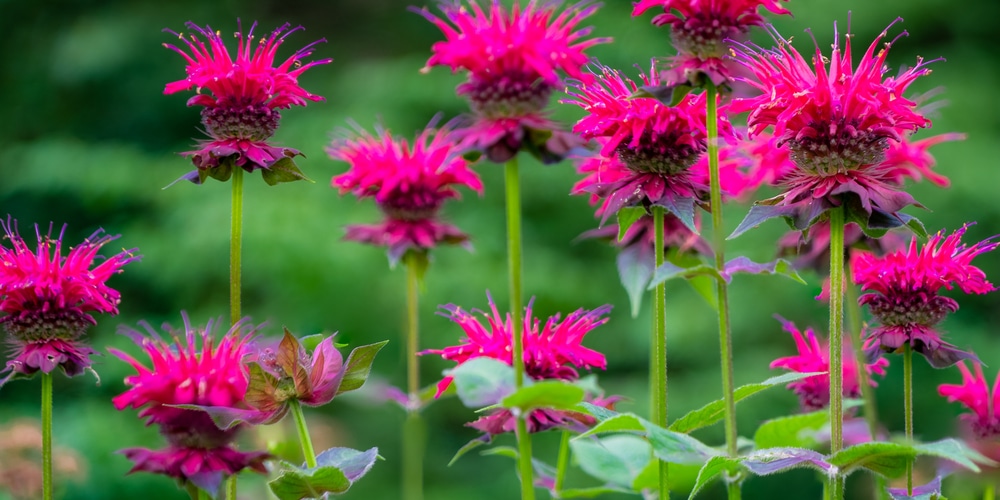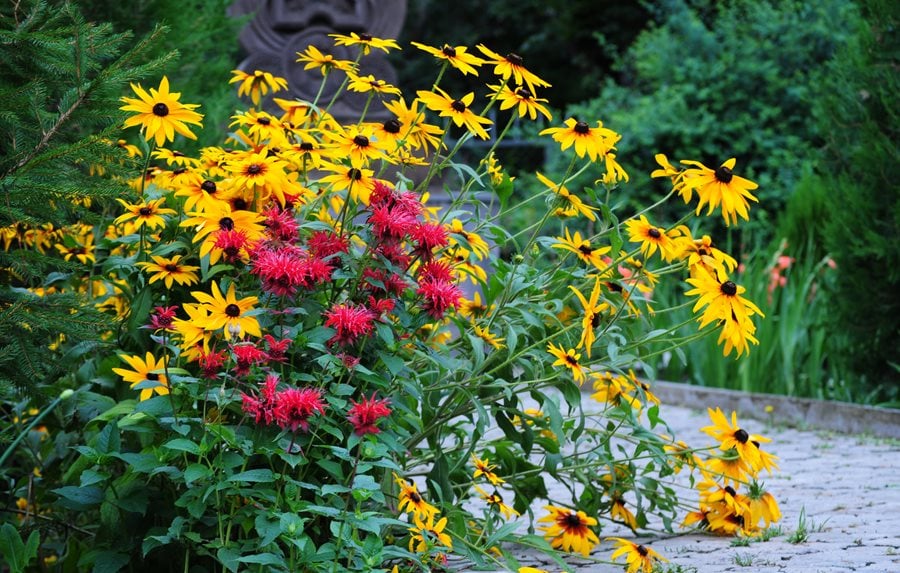Grow A Healthy Garden With Hyssop Companion Plants
Grow a Healthy Garden with Hyssop Companion Plants
Hyssop is a versatile herb that can be used for culinary, medicinal, and ornamental purposes. It is also a great companion plant for other herbs and vegetables. In this blog post, we will discuss the benefits of companion planting with hyssop and some of the best companion plants to grow with it.
Benefits of Companion Planting with Hyssop
There are many benefits to companion planting with hyssop. Here are a few of the most important:
- Hyssop attracts beneficial insects. Hyssop is a favorite of bees, butterflies, and other pollinators. These insects help to pollinate other plants in your garden, which can lead to a higher yield.
- Hyssop repels pests. The strong scent of hyssop can repel a variety of pests, including cabbage moths, flea beetles, and aphids. This can help to protect your other plants from damage.
- Hyssop improves soil health. Hyssop is a nitrogen-fixing plant, which means that it can help to improve the nitrogen content of your soil. This can benefit all of the plants in your garden.
- Hyssop adds beauty to your garden. Hyssop is a beautiful plant with attractive flowers and foliage. It can be used to add color and interest to your garden.
Best Companion Plants for Hyssop
There are many different plants that can be grown with hyssop. Here are a few of the best companion plants:
- Cabbage and cauliflower. Hyssop can help to repel cabbage moths and other pests that can damage these vegetables.
- Grapes. Hyssop can help to improve the growth and flavor of grapes.
- Lavender. Lavender and hyssop both have strong scents that can repel pests. They also look great planted together.
- Rosemary. Rosemary and hyssop are both Mediterranean herbs that can be grown in similar conditions. They also complement each other well in terms of flavor.
- Bee balm. Bee balm is another nectar-rich plant that attracts beneficial insects. It also has a similar growth habit to hyssop, so they can be planted together to create a beautiful border.
How to Plant Hyssop with Companion Plants
When planting hyssop with companion plants, it is important to consider the size and growth habits of the plants. For example, you would not want to plant hyssop next to a tall plant that would shade it out.
It is also important to consider the spacing requirements of the plants. Hyssop can grow quite large, so you will need to space it accordingly.
Once you have chosen your companion plants and considered the spacing requirements, you can plant them in your garden. Be sure to water them well after planting.
Conclusion
Hyssop is a great companion plant for a variety of herbs and vegetables. It can help to attract beneficial insects, repel pests, improve soil health, and add beauty to your garden. If you are looking for a way to improve your garden, consider planting hyssop with some of the companion plants listed above.
Hyssop is a versatile herb that can be used in a variety of ways, from culinary to medicinal. But did you know that it's also a great companion plant?
That's right, hyssop can help to deter pests and attract beneficial insects, making it a valuable addition to any garden. So if you're looking for a way to improve the health and productivity of your plants, consider planting some hyssop alongside them.
Here are a few of the best companion plants for hyssop:
- Cabbage: Hyssop helps to repel cabbage moths and flea beetles, which can be major pests for cabbage plants.
- Grapes: Hyssop can help to increase the yield of grape plants.
- Lavender: Lavender and hyssop both have strong scents that can deter pests, making them a good pair to plant together.
- Bee balm: Bee balm is a flowering plant that attracts bees and other pollinators, which can help to improve the pollination of your other plants.
- Rosemary: Rosemary and hyssop both have a strong aroma that can deter pests, and they also look great planted together.
For more information about hyssop companion plants, visit Gardenia Inspiration.
FAQ of hyssop companion plants
Q: What are some good companion plants for hyssop?
A: Hyssop is a versatile herb that can be paired with a variety of other plants. Some good companion plants for hyssop include:
- Cabbage: Hyssop helps to deter cabbage moths and flea beetles, which are common pests of cabbage.
- Grapes: Hyssop helps to protect grapes from pests and diseases.
- Lavender: Hyssop and lavender both attract bees and butterflies, which can help to pollinate other plants in your garden.
- Rosemary: Rosemary and hyssop both have strong scents that can help to deter pests.
- Yarrow: Yarrow helps to repel mosquitoes and other insects.
Q: What are some plants that should not be planted near hyssop?
A: There are a few plants that should not be planted near hyssop, including:
- Radishes: Radishes can be cross-pollinated with hyssop, which can affect the flavor of the radishes.
- Other members of the mint family: Planting hyssop near other members of the mint family, such as spearmint or peppermint, can cause the plants to compete for resources.
Q: How does hyssop benefit other plants?
A: Hyssop has a number of beneficial effects on other plants. For example, it can:
- Attract pollinators: The strong scent of hyssop attracts bees, butterflies, and other pollinators, which can help to pollinate other plants in your garden.
- Deter pests: The strong scent of hyssop can help to deter pests, such as cabbage moths, flea beetles, and mosquitoes.
- Improve soil health: Hyssop is a nitrogen-fixing plant, which means that it can help to improve the nitrogen content of the soil.
Q: How do I plant hyssop with other plants?
A: When planting hyssop with other plants, it is important to consider the size and growth habit of both plants. For example, hyssop can grow quite tall, so it is important to plant it behind shorter plants. It is also important to plant hyssop in a sunny location, as it needs full sun to thrive.
Q: Where can I find more information about hyssop companion plants?
A: There are a number of resources available to learn more about hyssop companion plants. Here are a few suggestions:
- The Companion Planting Handbook: This book by Suzanne Ashworth provides a comprehensive guide to companion planting.
- The Vegetable Gardener's Companion Planting Guide: This book by Niki Jabbour offers specific recommendations for companion planting vegetables.
- The Herb Companion Planting Guide: This book by Susan Belsinger provides detailed information on companion planting herbs.
Image of hyssop companion plants
5 different images of "hyssop companion plants" from Pinterest:
- Bee Balm: Bee balm is a striking flower with vibrant colors. They come in scarlet, pink, white, purple, and lavender shades. It is a great companion plant for hyssop because it attracts pollinators, such as bees and butterflies.

- Rosemary: Rosemary is another excellent companion plant option for all hyssop varieties. It is a drought-tolerant plant that can help to improve the drainage of the soil around hyssop. Rosemary also helps to repel pests, such as cabbage moths.
- Lavender: Lavender plants are a great option for companion planting with hyssops. They have similar growing requirements and can help to attract pollinators. Lavender also helps to repel pests, such as mosquitoes.
- Black-Eyed Susan: The Black-eyed Susan or the Rudbeckia fulgida, is a tall flowering plant that combines very well with hyssops as its companion plant. It is a hardy perennial that can help to provide structure and height to a garden. Black-eyed Susans also attract pollinators.

- Coneflowers: Coneflowers are hardy perennial wildflowers native to North America. They are a great companion plant for hyssop because they attract pollinators and help to deter pests. Coneflowers also come in a variety of colors, so you can choose the ones that best complement your hyssop plants.
Post a Comment for "Grow A Healthy Garden With Hyssop Companion Plants"